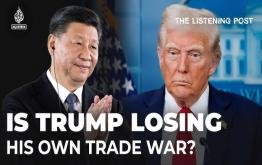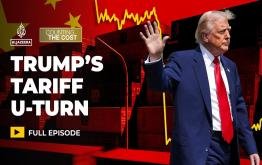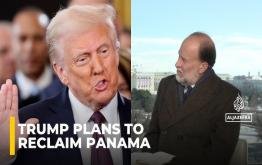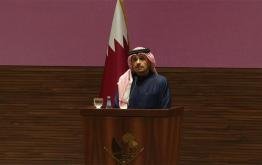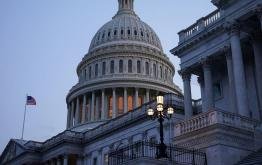
Economic cooperation plan between China and Iran will prove to be a 'game changer' in the global economic system
There is no official response from the United States so far on the $ 400 billion Comprehensive Economic Cooperation Plan for 25 years between China and Iran.
But analysts say that this step will prove to be an important 'game changer' not only for the region but in the global economic system.
There is uneasiness in Pakistan over the fact that now China is turning to Iran. But Pakistan's diplomats and analysts, who have a keen eye on the issue, have categorically dismissed this suspicion.
He says that the recent China and Iran Economic Cooperation Agreement will not be an alternative to the China Pakistan Economic Corridor (CPEC), but will strengthen it.
Iran's helplessness and China's need
According to experts, Tehran has tried to make itself a powerful country for the new global situation by collaborating with China on long-term economic, infrastructure construction and security issues.
But while doing so, on the one hand Iran may face new sanctions from the US, on the other hand this agreement can save it from the continuous sanctions of the US.
The long-standing US sanctions on Iran have brought it so close to China. This is why Iran has agreed to sell oil to China at a lower price than global rates. So that its oil sales can continue uninterrupted and the national treasury can get a reliable source of income.
Experts say that the documents of the agreement have not been revealed yet. But the information that has been received suggests that Iran's fragile economy can help bring economic stability to $ 400 billion projects over the next 25 years.
In return, China will be able to purchase oil, gas and petro-chemical products from Iran at a discounted rate. In addition, China will also invest in Iran's financial, transportation and telecommunications sectors.
Under this agreement, for the first time in Iran's history, the two countries will collaborate in state, security and military matters through joint training exercises, weapons modernization and joint intelligence.
According to the agreement reached between the two countries, five thousand soldiers of the People's Liberation Army of China will also be stationed in Iran. But keep in mind that there are also protests in Iran, in which former President of Iran Ahmadinejad is at the forefront.
It is also speculated that perhaps Iran may be an ideal candidate to adopt China's new digital currency, the E-RMB, which has weakened the power to ignore and approve the dollar.
Remember that Iran is not currently connected to the global financial and banking system SWIFT and is not dealing with Iran.
CPEC - Plus
According to Senator Mushahid Hussain Syed, President of the Pakistan-China Institute, the Iran-China strategic agreement is a good step for the region and also positive for Pakistan's interests, as it will strengthen regional economic cooperation, centered on Pakistan.
Mushahid Hussain hoped that it would help strengthen Gwadar Port's role in bringing stability to Balochistan and promoting regional cooperation with China, Afghanistan, Iran and Central Asian countries.
He further stated that it was unfortunate that India did not renew the IPI (Iran-Pakistan-India Pipeline) due to US pressure (when David Mulford was the US Ambassador to India on January 25, 2006). Instead opted for a nuclear deal with the US. India had removed the then minister Mani Shankar Aiyar who was a supporter of IPI.
Rejecting uneasiness about CPEC in Pakistan, Mushahid Hussain said that the Iran-China agreement would make CPEC more meaningful. Because both of these agreements are not for competition or rivalry, but both are aimed at strategic cooperation with China.
'Preparing to compete with world power'
Says India's famous defense analyst Praveen Sahni, "I think it would be wrong to see this agreement in the context of regional tensions in the Persian Gulf." China has always avoided supporting or opposing anyone in the Iran-Saudi rivalry. The main reason for China's increasing presence in the Persian Gulf is its economic affairs.''
He says that China and Saudi Arabia also signed major economic deals a year ago. But this new agreement of China with Iran reveals another important point. That is, instead of singlehanding Tehran, US sanctions have pushed it even further into China's camp. Therefore, the importance of this agreement is not only important for the region, but it also appears to be preparing to compete with the world power.
Says Praveen Sahni, "More details of the agreement are not currently available, so it cannot be compared to CPEC." Nevertheless, the major difference is that the basic interests of both the parties are connected. China needs oil, which it will get from Iran at cheaper rates.''
"In return, Iran wants to invest in its economic, oil production, infrastructure and trade, which China will provide," says Praveen Sahni. There is economic cooperation in China-Iran relations, which is not the case with China and Pakistan. What kind of role will this difference play, at the moment nothing can be said about it.''
According to him, "Iran has the resources that China desperately needs, that is, hydrocarbons." Pakistan has no such wealth. Therefore, in terms of economic matters, relations between Pakistan and China are very different from relations between China and Iran.''
According to Praveen Sahni, however, there has been much discussion on whether the corridor based on Pakistan, Iran, Central Asia will lead to economic development and improvement in the region.
Says Praveen Sahni, "It may be a long-term plan, but there is no possibility of its benefits in the short term. Iran and Pakistan do not manufacture industrial products that Central Asian countries import, nor do Pakistan and Iran are major markets for Central Asian exports.''
He said that there is such infrastructure from China to Central Asia as well as Europe, due to which there is a network of roads and railways. He says that "it is difficult to see how the new routes of China, Pakistan and Iran, will be able to be an alternative to these old paths".
Praveen further said that the project of building Chabahar port of Iran was initiated by India because India had to use Afghanistan's mineral resources and make them better by utilizing Iran's industrial capacity.
Clearly, given the ground situation in Afghanistan, it was like a 'distant drumming'. Afghanistan's economy is not large enough for India to build a major road or railway infrastructure for the India-Afghanistan trade corridor through Iran.
He further said that Pakistan has tried its best to stay away from Iran-Saudi confrontation in the Persian Gulf and so has India.
Says Praveen, "Both sides have economic interests in this confrontation, but at the same time, there are internal issues related to this confrontation. Therefore, it is becoming more and more difficult to maintain a balance between all the sides over time. Especially when the United States decides in the next few years that it needs to increase further pressure on Iran. I don't think there is any other option than to maintain a realistic balance.''
'America pushes Pakistan and Iran towards China'
Iqbal Ahmed Khan, former Pakistan ambassador and professor of diplomacy and international relations at Lahore University of Management Sciences, says China's investment plan with Iran is part of its $ 8 trillion BRI projects, one of which is CPEC.
According to former Ambassador Iqbal Ahmed Khan, it is not correct to compare China's investment in Iran to CPEC. Because both of these are Chinese investments and both will be helpful to each other and the three countries will benefit from it.
He says, "Both China and Iran are friends of Pakistan, so Pakistan wants the project to succeed."
Iqbal Ahmed Khan further said that China's investment in Iran is not at the cost of Pakistan, so it should not be considered "zero-sum game".
On the question whether Pakistan and China will be able to bear the burden of US sanctions on Iran. Iqbal Ahmed Khan said that the main reason for China's investment in Pakistan and Iran is, in fact, the sanctions imposed by the US or attempts to ignore these countries.
He says, "Both Pakistan and Iran have been sidelined by the US, due to which we had to look for another way. Pakistan decided to make the most of its political and geographical location. On one side is China and on the other side is Iran. However, if Pakistan is a friend of China, it does not mean that Pakistan is hostile to America, but China has asked Pakistan to improve its relations with both America and India many times. However, America should also realize this.
Iqbal Ahmed Khan said that Pakistan will gladly cooperate with Iran, but Pakistan will also try to make Iran like it a member of Shanghai Cooperation Council.
"China's cooperation with Iran will directly benefit Pakistan," he says. Oil from Iran, which currently reaches China after covering 13 thousand miles. He will reach China by a safe passage of 150 miles through Pakistan.''
He said that China's investments in Pakistan, Iran, Turkey and other Asian countries and its investment in economic and trade infrastructure, from the Atlantic Ocean to the regions of the Indian Ocean and the Pacific Ocean, are tangible signs of shifting the world's power.
Pakistan and Iran have an important role in this process of global change. There is also the role of US sanctions in this process of change, which is pushing these countries to the other side.''
'Iran Agreement and CPEC are natural partners'
Fatima Raza, a global affairs specialist at the Institute of Strategic Studies Islamabad, says that although the energy and infrastructure features in both projects are similar, the interests of the parties involved are different in many ways.
However, Fatima Raza said that the China-Iran agreement is a natural partnership agreement between the two countries, which could also further expand the prospects of CPEC.
Fatima Raza further said that for each party, comparing the two presents a different picture. "Both these projects provide an extraordinary opportunity for Pakistan to succeed, as it becomes a natural route for Iranian oil to reach China."
Fatima Raza said, "For China, it means a project like CPEC, which seeks to consolidate the impact of its expansion in the region, which will create trouble for US interests in the region."
Fatima Raza says the deal will help Iran meet its financial needs, which it desperately needs.
Fatima Raza said, "Both deals reinforce each other in their nature rather than being competitive, but its success depends on the parties utilizing their full potential."
'Impact on overall geo-political balance of Gulf and region'
Osama al-Sharif, an analyst at Arab News, wrote that the 25-year comprehensive strategic partnership agreement between China and Iran would have a long-term impact on the overall geopolitical-political balance of the Gulf and region.
The agreement has been signed at a time when relations between Beijing and Washington are very tense.
The deal gave Tehran a strong position on Iran's nuclear deal with the West, renegotiation and efforts to expand it.
According to Osama al-Sharif, the agreement would provide China with the opportunity to deploy 5 thousand security and military personnel on Iranian soil, which would prove to be a regional game changer.
Prior to China, Tehran signed a 10-year cooperation agreement with Moscow in 2001, particularly in the nuclear sector, which has since been extended twice.
He wrote that two years ago I joined a naval exercise with Iran, Russia and China. This new agreement will allow China to set up bases in the Gulf region as well as in Central Asia.
In return, Iran will get China's technology and invest in its poor infrastructure.
The Chinese government has been strengthening its economic ties with other Gulf countries for years.
Beijing has signed cooperation agreements with the United Arab Emirates and Kuwait and has good relations with Saudi Arabia.
Osama al-Sharif wrote, "The new agreement will increase the sense of danger in the capitals of the Arab countries of the Gulf." Because these countries see Iran as a major source of instability and its alliance with Beijing will further strengthen the line between Tehran and Qom.''
Also, according to Osama al-Sharif, Israel will also feel uneasy about China's move. Both Russia and China, who signed Iran's nuclear deal, supported Tehran's side and openly violated US sanctions.
Tension between USA and China increased
Alex Lantier, an analyst with the World Socialist Organization, writes that the terms of the Iran-China agreement have not been disclosed. But these signatures came at a time when the US refused to lift the restrictions imposed by former President Donald Trump. At the same time, the differences between China and the United States came to the fore in the conference to be held in Alaska of China and America.
Speaking to the press before the summit began, US Secretary of State Anthony Blinken said that China should accept Washington's "international order based on the rule" or else it would "have a more rigid and unstable world." Will have to face it.''
In Tehran, Chinese Foreign Minister Wang Yi said in response to a question that "relations between our two countries have now reached a strategic level and China is trying to promote wider relations with the Islamic Republic of Iran.''
The signing of the roadmap for strategic cooperation between the two countries shows that Beijing will enhance relations to the highest level.
China resistance
According to the Chinese government news agency Global Times, the Chinese foreign minister told Iranian officials that "China will dominate domination and opposition to hooliganism, along with protecting international justice, as well as international norms with the people of Iran and other countries."
The agreement was first discussed in 2016 between Iran's Supreme Leader Syed Ali Khamenei and Chinese President Xi Jinping.
To deepen economic ties with the Middle East, China also offered Iran to cooperate in development with its BRI program.
The Tehran Times quoted Iran's Ambassador to China Mohammad Keshavarz Zadeh as saying that the agreement "clarifies the potential for cooperation between Iran and China, particularly in the fields of technology, industry, transportation and energy." The firms have built mass transit systems, railways and other important infrastructure in Iran.
In December 2020, amid speculation about the signing of the deal, Peter Berkowitz, director of the policy planning staff of the US State Department, condemned it.
He told the newspaper Al Arabia that if this agreement was reached, it would be bad news for the "free world". Iran sows the seeds of terrorism, death and destruction throughout the region. Empowering this country of the People's Republic of China will further increase the risk.



